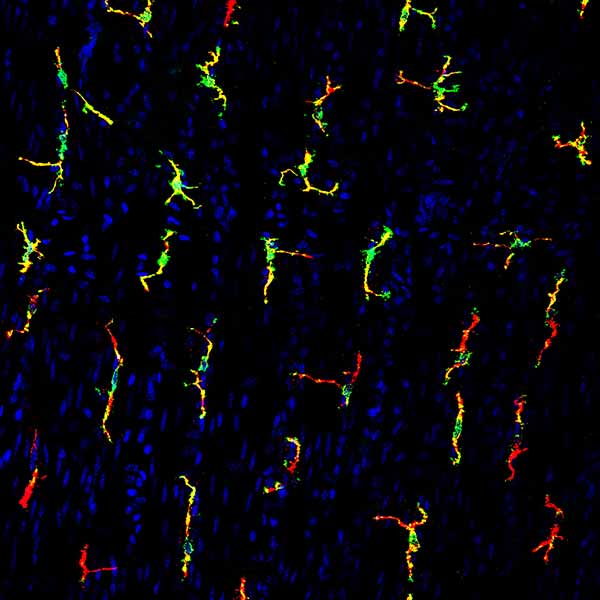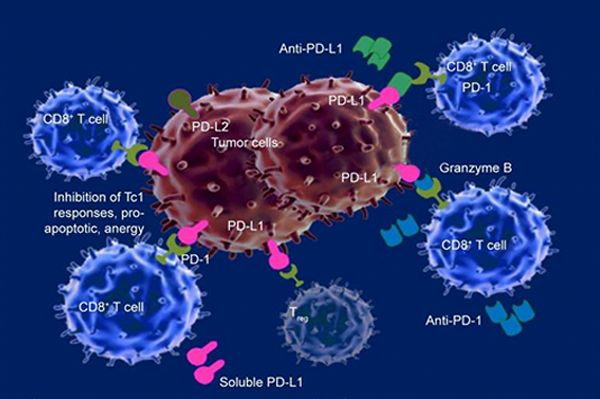| New from NCI |
| Immune Cells Linked to Diarrhea Caused by Chemotherapy |
 |
|
A study in mice sheds light onto how some chemotherapies cause diarrhea. The findings could be the basis for developing new treatments for patients with cancer who develop gastrointestinal side effects from chemotherapy. |
| FDA Changes Approved Use of Drugs for Bladder Cancer |
 |
|
The Food and Drug Administration (FDA) has changed the approved uses of two checkpoint inhibitors, pembrolizumab (Keytruda) and atezolizumab (Tecentriq), to treat the most common form of bladder cancer. The change is based on whether patients’ tumors have a specific biomarker. |
Free NCI E-Books Now Available in Google Play
NCI’s popular patient education e-books are now available for download through Google Play. |
Aggressive Prostate Cancer More Common Than Expected
Researchers have found that men with advanced prostate cancer may be more likely than previously thought to develop a more aggressive form of the disease.
|
| PDQ Summary Updates |
Male Breast Cancer Treatment
We’ve revised our PDQ summary on male breast cancer treatment with updated information about signs of the disease and standard treatment options. |
Melanoma Treatment
We’ve updated this PDQ summary to include information on the use of talimogene laherparepvec (a type of oncolytic virus therapy) as a standard treatment option for stage III melanoma that cannot be removed by surgery, stage IV melanoma, and recurrent melanoma. |
Ovarian Epithelial, Fallopian Tube, and Primary Peritoneal Cancer Symptoms, Tests, Prognosis, and Stages
We’ve revised our PDQ summary on ovarian cancer with updated information about risk factors for this disease.
|
| Drug Information Updates |
Enzalutamide for Prostate Cancer
We’ve updated our summary on enzalutamide (Xtandi) to reflect FDA’s expanded approval of the drug for patients with castrate-resistant prostate cancer. The expanded approval covers nonmetastatic and metastatic disease. The previous approval was limited to patients with metastatic disease. |
New Approval for Certain Colorectal Cancers
We’ve updated our drug information summary on ipilimumab (Yervoy), which was recently approved by FDA to be used with nivolumab to treat certain types of colorectal cancer in adults and children 12 years and older. |
New Drug for Acute Myeloid Leukemia (AML)
We’ve added a new drug summary for ivosidenib (Tibsovo), which FDA recently approved to treat recurrent or refractory AML that has a certain genetic mutation. |